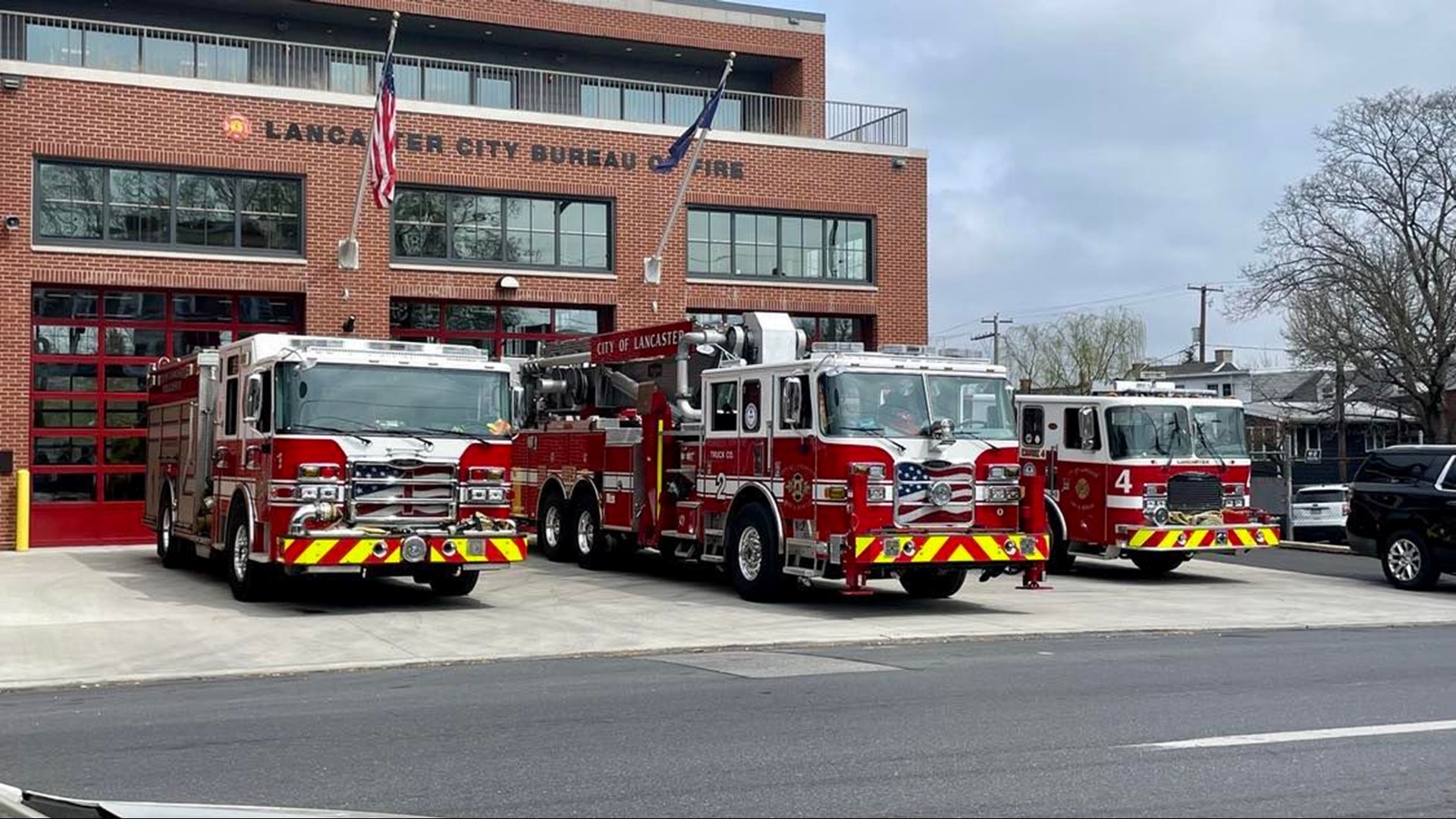LANCASTER, Pa. — Gov. Josh Shapiro toured Lancaster Bureau of Fire’s newly renovated Station 3 on Wednesday, part of a push for his proposed budget’s investments in fire, EMS and 911 services.
The governor’s budget proposal includes $36 million for new equipment and training for firefighters and EMS workers, and more than $50 million for the state’s 911 emergency communications system.
The funding proposal comes as emergency responders face a staffing emergency.
By 2018, Pennsylvania had 22,000 fewer volunteer firefighters than in the early 2000s. From 2012 to 2023, the state also lost 6,000 EMTs.
At the same time, officials said, calls for service have shot up.
“With rising costs, nearly flat revenues, and continued obligations that we need to fill, this equation gets more and more difficult with every passing year,” said Lancaster City Mayor Danene Sorace.
Lancaster County has recently been dealing with the effects of the strained emergency services. Northwest EMS, which covers most of the northwest portion of the county, has run at a deficit for six years and will soon be replaced by the Municipal Emergency Services Authority of Lancaster County (MESA), a coalition of eight municipalities in northwest Lancaster County that will service the area previously covered by Northwest EMS. The initiative is the first of its kind in Pennsylvania, in which every property owner.
Lancaster County Commissioners on March 29 allocated $375,000 in federal COVID-19 funds to MESA.
Fire and EMS officials have stressed the need for stable funding sources in addition to one-time payments.
That need has already come to the attention of state lawmakers. State Rep. Brad Roae (R-Crawford) has introduced several bills designed to provide long-term funding solutions.
One bill would allow counties to use the $5 vehicle registration fee toward EMS rather than local bridges. Another would allow counties to use hotel tax funds toward EMS rather than to promote tourism. A third bill would reinstate a state-level licensing exam rather than a federal exam, which is harder to pass because it covers topics not applicable in Pennsylvania.
Gov. Shapiro said his proposed budget allocations would be recurring in future budgets, and that local governments should not have to use their own funds or divert other tax funds to prop up emergency services.
“Before we take away local tax dollars from a mayor, county commissioner, etc., I think we should add to that pot,” Shapiro said.
Additional funding could also help professional fire companies maintain the size they need to cover areas no longer adequately serviced by volunteer fire companies.
“In the last two years we brought on 17 firefighters, which for our complement of 62, that's a lot of firefighters to bring on,” said Lancaster City Bureau of Fire Captain Kevin Ressler.
In a House Republican Policy Committee hearing on first responders in February, fire and EMS officials warned a lack of workers and funding was pushing the system to the brink of collapse across the Commonwealth.

